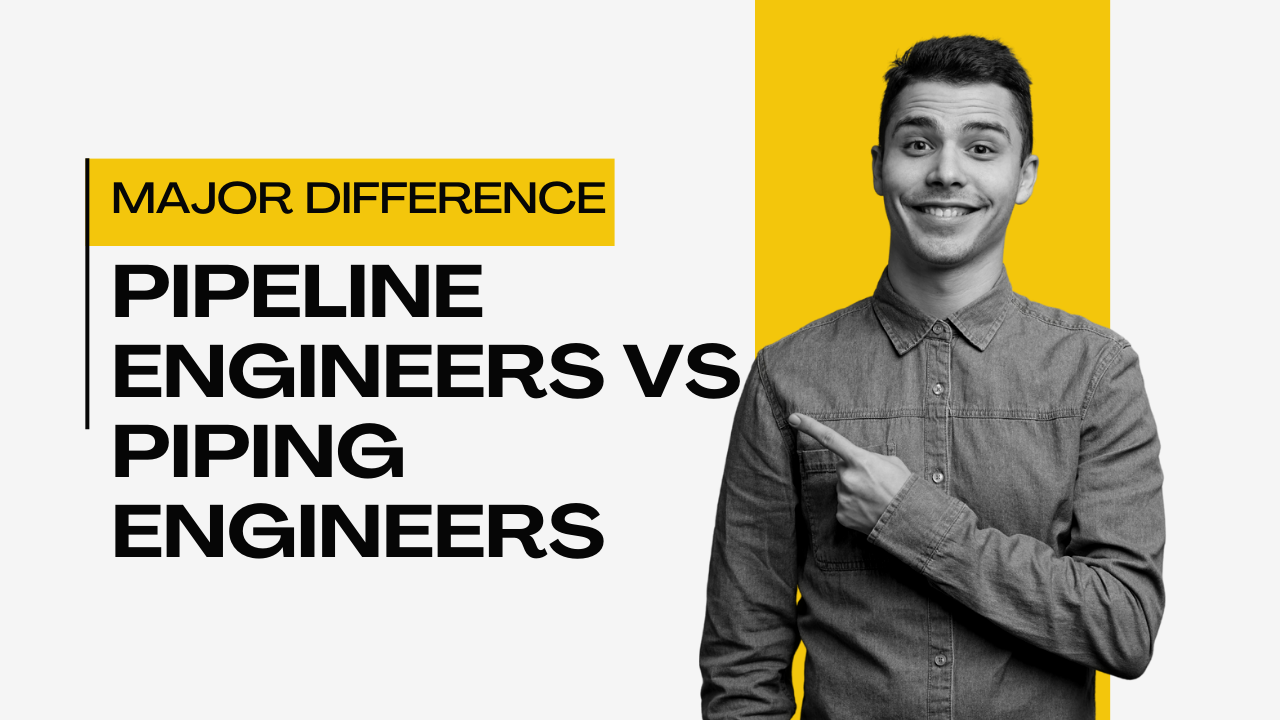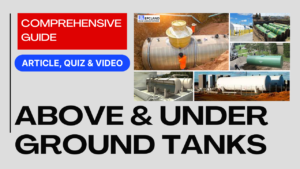Introduction
In the world of engineering, Pipeline Engineers vs Piping Engineers, particularly within the realm of oil and gas, petrochemical, and water industries, are often used interchangeably. However, these roles possess distinct responsibilities and areas of expertise. This article aims to shed light on the differences between pipeline engineers and piping engineers, exploring their roles, skills, and contributions to the field.
Table of Contents
Don’t miss the Complete Course on Piping Engineering: Check Now
By EPCLand.com
Pipeline Engineers: Navigating the Lifelines of Energy Transportation
Defining Pipeline Engineers
Pipeline engineers specialize in the design, construction, operation, and maintenance of large-scale transportation systems that convey liquids and gases over long distances. These systems, often referred to as pipelines, are crucial for the efficient movement of resources like crude oil, natural gas, water, and even chemicals.
Roles and Responsibilities
Pipeline engineers are responsible for a range of tasks throughout the lifecycle of a pipeline:
1. Design and Planning
Pipeline engineers assess factors such as terrain, environmental impacts, and material compatibility when designing new pipelines or expanding existing ones. Their role involves determining optimal routes, considering safety regulations, and calculating pressure and flow requirements.
2. Construction and Installation
During the construction phase, pipeline engineers oversee the installation of the pipeline, ensuring proper welding, insulation, and connection of sections. They collaborate with various teams to ensure projects are executed with precision.
3. Operation and Monitoring
Pipeline engineers monitor pipeline operations to ensure safety and efficiency. They analyze data related to pressure, flow rates, and temperature to detect anomalies and address potential issues promptly.
4. Maintenance and Integrity
Maintaining the integrity of pipelines is a critical aspect of a pipeline engineer’s role. Regular inspections, corrosion management, and implementing repair strategies are essential to prevent leaks and failures.
Piping Engineers: The Architects of Fluid Conveyance within Facilities
Defining Piping Engineers
Piping engineers focus on designing, analyzing, and maintaining the intricate network of pipes that transport fluids within industrial facilities. These systems are integral for processes such as manufacturing, power generation, and chemical processing.
Roles and Responsibilities
Piping engineers play a pivotal role in ensuring that fluid transport within facilities remains efficient and reliable:
1. Design and Layout
Piping engineers design the layout of pipes within a facility, considering factors like fluid properties, pressure requirements, and space constraints. Their designs must adhere to safety codes and standards.
2. Material Selection
Selecting appropriate materials for pipes is crucial to prevent corrosion and ensure longevity. Piping engineers consider factors such as the type of fluid being transported and the operating conditions.
3. Stress Analysis
Pipes are subjected to various stresses due to pressure, temperature changes, and external forces. Piping engineers perform stress analysis to ensure pipes can withstand these conditions without failure.
4. Support and Installation
Piping engineers collaborate with structural engineers to design support systems that hold pipes securely in place. Proper installation techniques are essential to prevent leaks and maintain system integrity.
Key Differences and Overlapping Areas
Areas of Distinction
While both pipeline engineers and piping engineers deal with fluid transportation, their scopes and responsibilities differ significantly:
Scale and Length
Pipeline engineers manage systems that span vast distances, often across countries or continents. Piping engineers work on smaller-scale systems within industrial plants.
Transportation Purpose
Pipeline engineers focus on long-distance transport of resources like oil and gas. Piping engineers deal with in-plant fluid movement for manufacturing or processing.
Overlapping Responsibilities
Despite their differences, there are areas of overlap between these roles:
Material Selection
Both roles involve selecting materials that resist corrosion and can withstand the transported fluids’ properties.
Safety Considerations
Safety is paramount for both pipeline and piping engineers. They must adhere to regulations and design systems that minimize risks.
FAQs about Pipeline Engineers vs Piping Engineers
Q1: Can a pipeline engineer transition to becoming a piping engineer?
A1: Yes, while there are differences, the foundational engineering principles are transferrable, making such transitions possible with proper training.
Q2: Are the skills required for these roles similar?
A2: There are similarities, such as knowledge of fluid mechanics and material science, but each role demands specific expertise due to their distinct responsibilities.
Q3: What qualifications are typically required for these roles?
A3: Both roles usually require a bachelor’s degree in engineering, often in fields like mechanical, civil, or chemical engineering.
Q4: Is there a higher demand for pipeline engineers or piping engineers?
A4: Demand can vary based on industry trends and projects. The demand for pipeline engineers might be influenced by factors like new energy projects and environmental concerns.
Q5: How do these roles contribute to sustainable development?
A5: Both roles play a role in sustainable resource transportation and efficient facility operation. Pipeline engineers contribute to minimizing transportation emissions, while piping engineers design systems that optimize energy usage.
Conclusion
In summary, pipeline engineers and piping engineers are integral to industries that rely on fluid transportation. While their responsibilities and scopes differ, both roles contribute to the safe and efficient movement of resources. Understanding these distinctions helps industries leverage the expertise of these professionals effectively, ensuring the smooth functioning of energy transportation and industrial processes.
Recommended courses (Published on EPCLand):
- Basics of Piping Engineering
- Piping Layout Engineering
- Piping Material Engineering
- Piping Stress Analysis
- Complete Course on Piping Engineering
- Material Requisitions
- Piping Material Specifications
- Valve Material Specifications
Don’t miss the published articles on following:
Related Video
Attempt Quiz
Question 1:
What is the primary focus of Pipeline Engineers?
Explanation: Pipeline Engineers primarily focus on designing and constructing long-distance transportation systems for fluids, such as oil, gas, water, and other liquids or gases.
Question 2:
What type of projects do Piping Engineers typically work on?
Explanation: Piping Engineers typically work on designing and analyzing small-scale fluid transportation systems within industrial plants, including process piping for various applications.
Question 3:
Which of the following is a common responsibility of Pipeline Engineers?
Explanation: Ensuring the safety and integrity of long-distance pipelines is a common responsibility of Pipeline Engineers, who need to consider factors such as material selection, corrosion prevention, and environmental considerations.
Question 4:
What key aspect do Piping Engineers focus on in their designs?
Explanation: Piping Engineers focus on ensuring the efficient and safe flow of fluids within a confined space, which involves considerations such as pressure, temperature, material compatibility, and structural integrity.
Question 5:
Which of the following industries commonly employs Pipeline Engineers?
Explanation: The oil and gas industry commonly employs Pipeline Engineers to design, construct, and maintain the intricate network of pipelines for transporting oil, gas, and other fluids.



